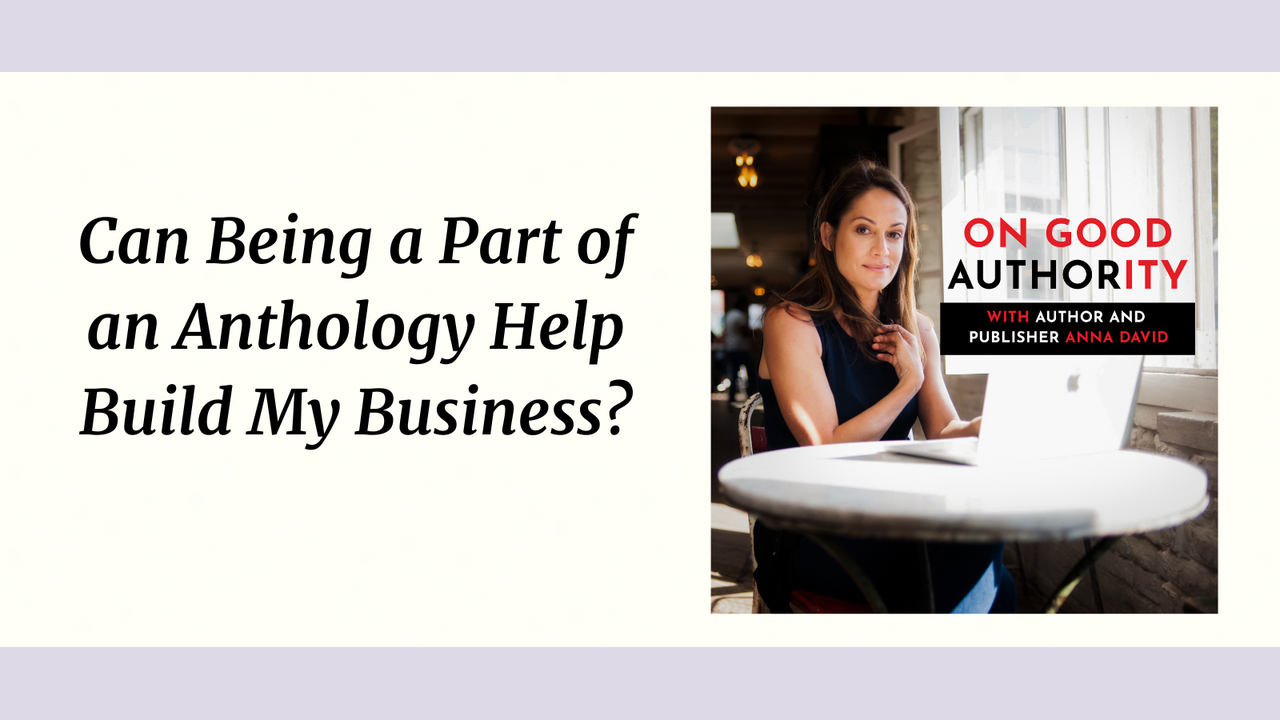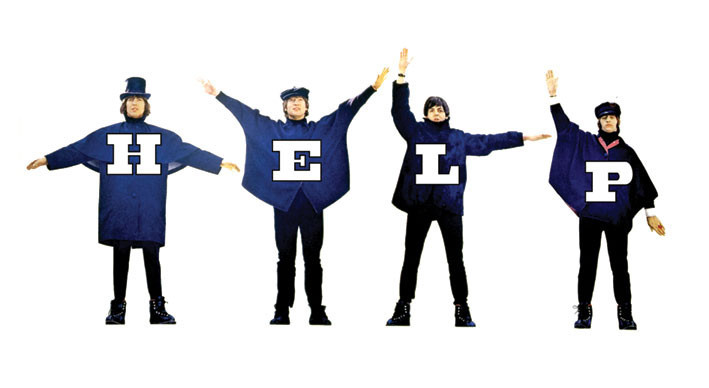
Should I Hire a Company to Write and Publish My Book?
You could call this one self-promotional since this is exactly what my company does, but honestly it’s not. (I’ll get into that in a second.) Really, I’m asked about this so much that I decided it made sense to record a podcast episode about it.
First Things First
If you use a company like Legacy Launch Pad, it is a paid service. We don’t provide introductions to agents or help aspiring authors sell their books to traditional publishers. And we don’t do one-off services—say, just ghostwriting or just marketing.
Our core business is writing and launching books for seven and eight figure entrepreneurs. But what does that mean?
It means that when a client comes to us, I partner them with one of my writers; I have a very small team for the very particular reason that I find that finding amazing writers is challenging. And I’m a writing snob. Our writers are WSJ and USA Today bestselling authors who write for publications like The Huffington Post and the NY Times.
The Relationship Between Writer and Client
The partnership and chemistry is so important; this is a person the client will be sharing their innermost feelings with and it becomes quite intimate.
The client and writer are not writing together. The client should never, in the ideal scenario, ever put proverbial pen to paper. The writer is essentially acting as the client’s personal documentarian, capturing their philosophies, experiences and thoughts into a compelling narrative.
Oftentimes clients will be concerned that working with a ghostwriter means the book won’t sound like them. To that, I say: seasoned writers have been trained in different voices. You could call it our core skill: being adapatable with our words. When I was a freelance journalist, one day I’d be doing a story for Cosmo and the next for Playboy and still the next for Vanity Fair. Each of those publications had a different “voice” and the editor assigning me the story knew that it was my job to make the story fit the publication’s.
The same goes for a client’s voice. The book uses their turns of phrases, their expressions and their jargon.
So Why Shouldn’t the Client Write the Damn Book?
To be clear, the client absolutely can and some absolutely do. We actually have a Publishing Only service for those people. But it’s not our core business and we only started offering it because so many people came to us wanting it.
Here’s why it’s not our core business: if someone doesn’t spend every day all day writing and hasn’t been doing that for at least a decade, they are not going to be able to write a book that’s as good as someone who does. The best writers are the ones who do it for a living and even if someone is often told they’re a great writer, if they do not do it for a living, the book is probably not going to read as professional without some serious editing.
And That’s Where It Gets Complicated
I can’t tell you the number of clients who come to us with “finished” books they believe are ready to publish. And they believe that because before finding us they hired an editor—often an editor who charged them a fortune—and that editor told them the book was “done.”
The problem is, my cat could call himself an editor and get hired. Well, not quite but while you and I can’t walk into a hospital and declare ourselves doctors (unless you yourself are a doctor to which I say, much respect), ANYONE can call him or herself an editor. And from what I’m seeing, many who are not qualified do.
Trust me, the last thing a Publishing Only client wants to hear after forking over moola for an editor is that the editor sucked or was lazy. The problem is we don’t know what we don’t know and most people looking around for book editors don’t even know there are all sorts of editors out there (I’ve gone deeper into that in other episodes).
So the real issue is the space between what the client thinks of as “finished” and what we do. And like I said, I’m a snob.
But Let’s Say We Have a Finished Manuscript
After getting feedback on the draft, the writer completes a second draft and then it goes through the editing process—developmental edit, copy editing and proofreading. Then it gets laid out in book form and is proofread again because no matter how many humans look at a book for errors, they are human and thus miss things.
We simultaneously are working on the client’s cover. This starts with a client filling out our cover questionnaire and giving examples of book covers they like. We give them four different concepts and then dozens of each of those concepts.
And this is where the real stopgap can happen.
Let the Experts Decide
The problem with book covers is it’s a somewhat subjective choice; people like certain fonts and colors. And then they ask their friends, who also like certain fonts and colors. And then we’ve got a whole lot of opinions from people who don’t necessarily understand that what people like and what they buy are different.
So this process can take months. We have a “customer is always right” philosophy so I’m sad to say that when a client is absolutely insistent on having a certain cover that we know doesn’t work as well as another one we’ve designed, at a certain point, we just have to let it go. And it sucks because while we don’t know about a lot—don’t try to get me to help you figure out the dinner tip—we know about publishing!
The same goes for titles. We put all potential titles through a massive brainstorming operation, taking in the latest research about works, keywords and the right combination of creativity. It’s a process that’s half art, half science and wholly works.
The Small Things That Are Actually Big
Based on what I see on Amazon, there are a lot of people out there who think just throwing a paragraph up on the book page will suffice. But HELLLLLLLL no. A book description is the difference between having someone purchase or dismiss. Do you know how hard it is to get someone to your Amazon page? Why would you not pull out every stop? So we do our book description and author bio magic.
You can have different descriptions for different places; Amazon prioritizes bullet points when it comes to searchability, whereas that may not work on the back spine of a paperback.
The Extras
I’ve already talked a lot about bestseller launches but that’s something professionals also do and traditional publishers for the most part don’t because they tend to be Amazon averse and thus not clear on the best methods. And we have clients that want all sorts of add ons, from introductions to Hollywood producers to VIP premieres to conversion of books into TEDx talks to marketing and placement in publications to consultations with publicists to websites to EPKs.
You’re Really Paying for the Knowledge
One of the biggest things a company like ours provides is the knowledge from decades in publishing. There’s a world of difference between pitching yourself to podcasts to promote your book and effectively pitching yourself so that you actually get booked. Ditto EVERYTHING else. People who are constantly researching the latest tools know about things that you couldn’t—how to get a book listed in 10 Amazon categories instead of the two Amazon requests, using Amazon A+ content, printing QR codes on bar codes to name a few.
In the end, if you’re going to do something as major as a book, do it right. The reason I want to be 100% clear that I’m not telling whoever is listening to hire us is that we serve a very specific sort of client (there’s way more about that on our website). We are not right for everyone, or even most people. And there are literally dozens of other companies out there that do this, some of them much bigger.
The reason there are so many companies out there that do this is crucial: there is literally no better tool to grow your business. The fact is we charge a lot of money for this service and we have a policy of not taking money from anyone we don’t think can earn back at least 10 times what they pay us. (There are exceptions; see below.)
You Should NOT Do a Paid Service If…
You don’t have a business connected to your book. UNLESS you are 100% fine spending the money. And we have had those people. Just be clear with yourself; you’re setting yourself up for disappointment if your expectations aren’t realistic.
 HERE'S HOW I CAN HELP YOU WHEN YOU'RE READY:
HERE'S HOW I CAN HELP YOU WHEN YOU'RE READY:
→ You can get my 5 steps to creating a life-changing book
→ You can apply for an Authority Experience to have us create the concept and promotion plan for your authority-building book
→ You can apply for a call to work with Legacy Launch Pad (our publishing packages range from $7k-150k)
RELATED EPISODES
What to Do 60 Days, 30 Days and 7 Days Before Your Launch
What Are the Exact Steps to Publishing a Book?
Do People Look Down on Self-Publishing?
How Do I Avoid Hiring the Wrong Editor for My Book?






